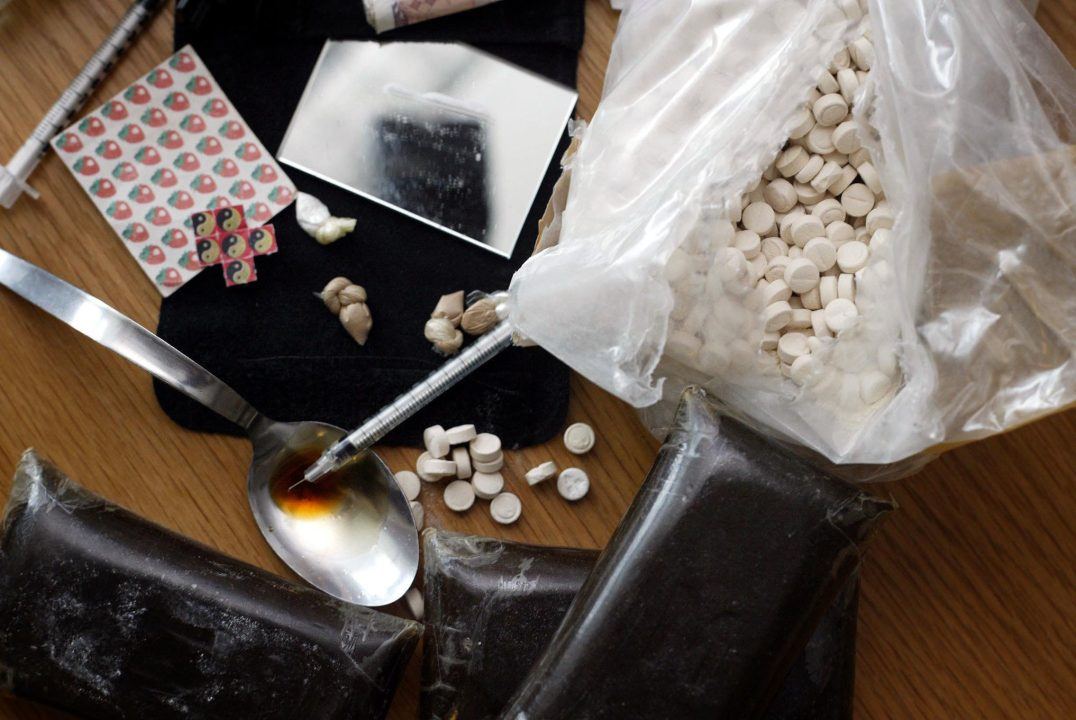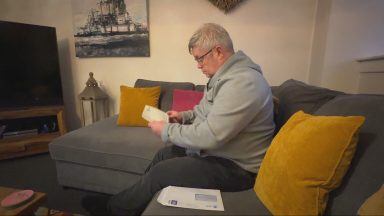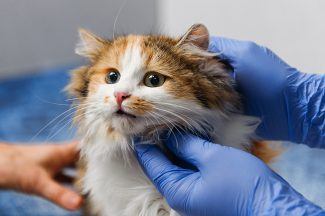Synthetic opioids up to 500 times more potent than heroin have been detected across most areas of Scotland, an expert has warned.
Nitazenes is an umbrella term given to a number of synthetic opioids that are often cut with other opioid substances, such as black market morphine.
Speaking at a Scottish Police Authority (SPA) board meeting in Glasgow on Thursday, its director of forensic services, Fiona Douglas, warned the substances are a “specific cause for concern due to their potency”.
Nitazenes vary in strength but the board heard they can be up to 500 times stronger than heroin.
She said: “We continue to work with partners, particularly Public Health Scotland (PHS), to provide data to monitor the impact these types of drugs have on the public and communities across the country.”
However she said their prevalence in Scotland remains “very low”.
She cited a recent SPA report which found such opioids were detected in 15 drug-related seizures in 2021, around 0.2% of the total number of cases that were taken for testing during that period.
She said: “Across Scotland since June 2022 there have been 64 fatalities where a nitazene has been detected.
“In all of these cases there has been other drugs present, and it has not been confirmed if the nitazenes were implicated in the cause of death or if they were incidental.
“To put the 64 cases in context, in the same period, forensic services has detected more than 1,000 cases which were positive for morphine or heroin.
“The concentration of the nitazene found is low, but due to their potency it could be significant.
“There is currently no significant impact on the operation of forensic services to analyse and detect nitazenes, other than the need to ensure that we continue to invest in technology and training of our experts to allow new drugs to be detected as they are developed.”
Nitazenes are generally not sought by users, she said, but taken “unexpectedly alongside other drugs such as heroin, therefore there is a risk of overdose”.
The Scottish Drugs Forum is supplying drug-users with testing strips to check the purity of the drug they believe they are taking, though they can sometimes provide inaccurate results.
Ms Douglas said SPA forensics experts will continue to work alongside PHS and Police Scotland to ensure they are “prepared for any potential cluster of adverse effects”.
She added: “Forensic services is strengthening our partnerships with other laboratories in Scotland to ensure swift and appropriate sharing of information regarding drugs of concern, to ensure that we are monitoring trends.
“Nitazenes are still very rare in Scotland, as the data in my report shows, but with increasing public concern, we will continue to work with our partners to monitor and adapt the ensure that we continue to deliver scientific excellence to keep the communities and public of Scotland well informed and protected.”
Police Scotland encouraged anyone with information on drug supplies, including nitazenes, to contact officers on 101 or Crimestoppers on 0800 555 111.
A spokesperson added: “Emerging drug trends are constantly monitored and we act proportionately to any increase in the prevalence or circulation of new drugs.
“We are aware of the existence of synthetic opioids, including nitazenes, and continue to share information with partners to keep people safe.
“We work closely with PHS, the Scottish Government, alcohol and drug partnerships and drug support services to raise awareness of the harms caused by substance use, as well as current or emerging trends which can detrimentally impact on these harms.
“Police Scotland is also committed to disrupting organised criminality in all its forms, including the supply of drugs in our communities. We can’t tackle this alone and we rely on the support of the public to help us build intelligence on any drug-related issues.”
A PHS spokesperson said: “PHS and Police Scotland have a two-way relationship that enables the sharing of intelligence and data.
“Police Scotland provides PHS with information that enables a greater understanding of the illicit drugs market in Scotland, such as data on drug seizures and forensic toxicology. PHS provides Police Scotland with information about reports and emerging drug harms trends.
“Patient confidentiality is maintained and no information is provided that can identify an individual.”
The National Crime Agency has been contacted for comment.
Follow STV News on WhatsApp
Scan the QR code on your mobile device for all the latest news from around the country


 PA Media
PA Media

























